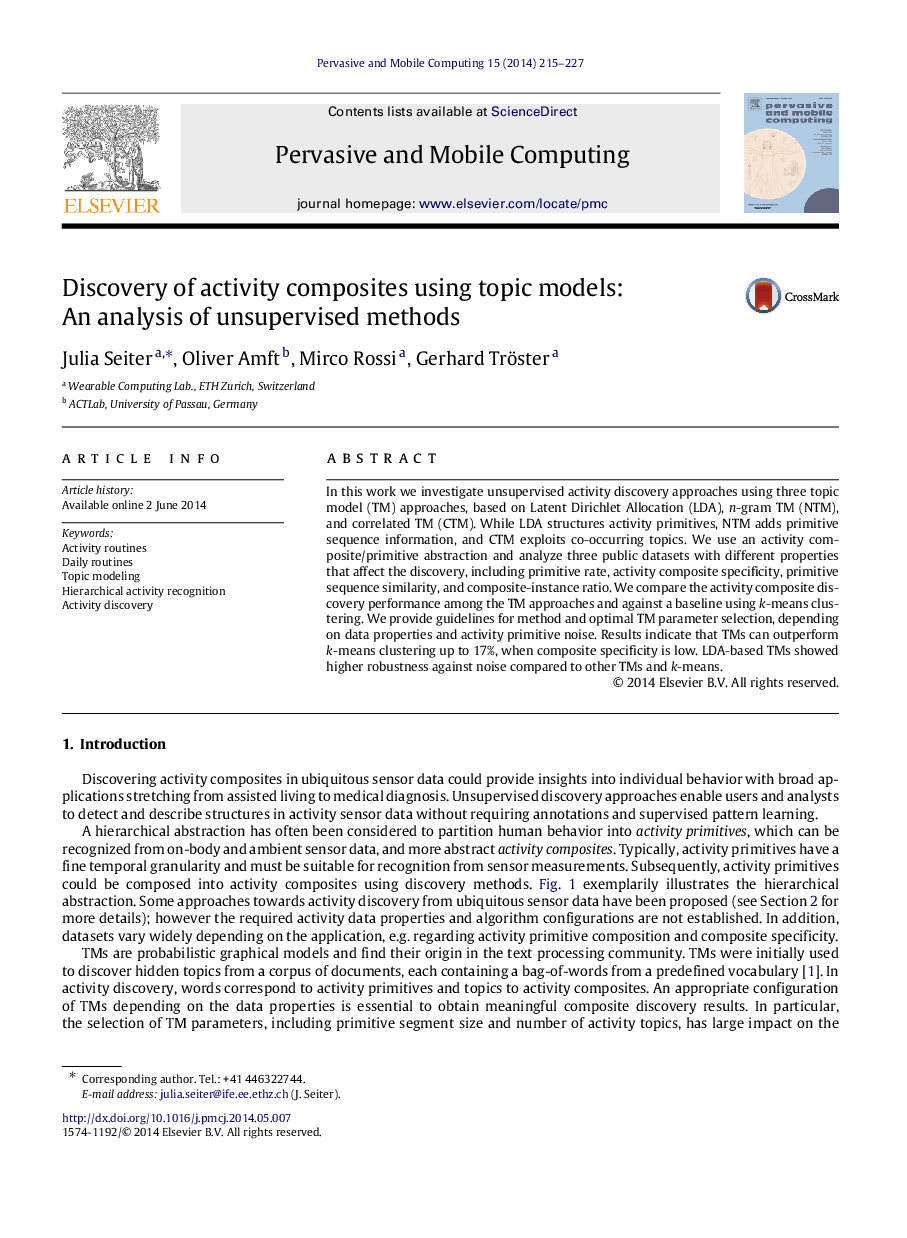| Article ID | Journal | Published Year | Pages | File Type |
|---|---|---|---|---|
| 464886 | Pervasive and Mobile Computing | 2014 | 13 Pages |
In this work we investigate unsupervised activity discovery approaches using three topic model (TM) approaches, based on Latent Dirichlet Allocation (LDA), nn-gram TM (NTM), and correlated TM (CTM). While LDA structures activity primitives, NTM adds primitive sequence information, and CTM exploits co-occurring topics. We use an activity composite/primitive abstraction and analyze three public datasets with different properties that affect the discovery, including primitive rate, activity composite specificity, primitive sequence similarity, and composite-instance ratio. We compare the activity composite discovery performance among the TM approaches and against a baseline using kk-means clustering. We provide guidelines for method and optimal TM parameter selection, depending on data properties and activity primitive noise. Results indicate that TMs can outperform kk-means clustering up to 17%, when composite specificity is low. LDA-based TMs showed higher robustness against noise compared to other TMs and kk-means.
